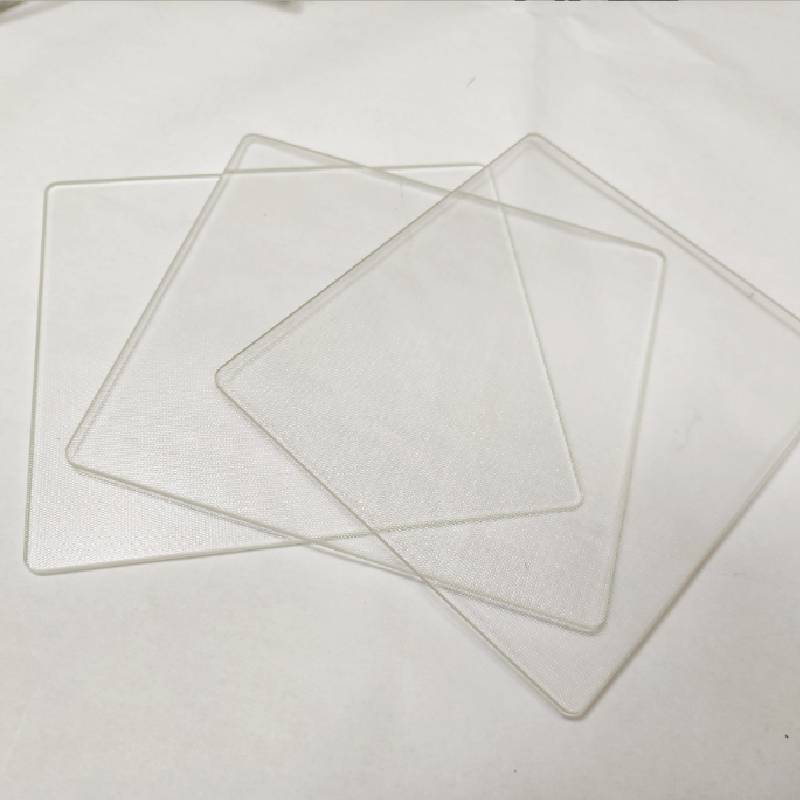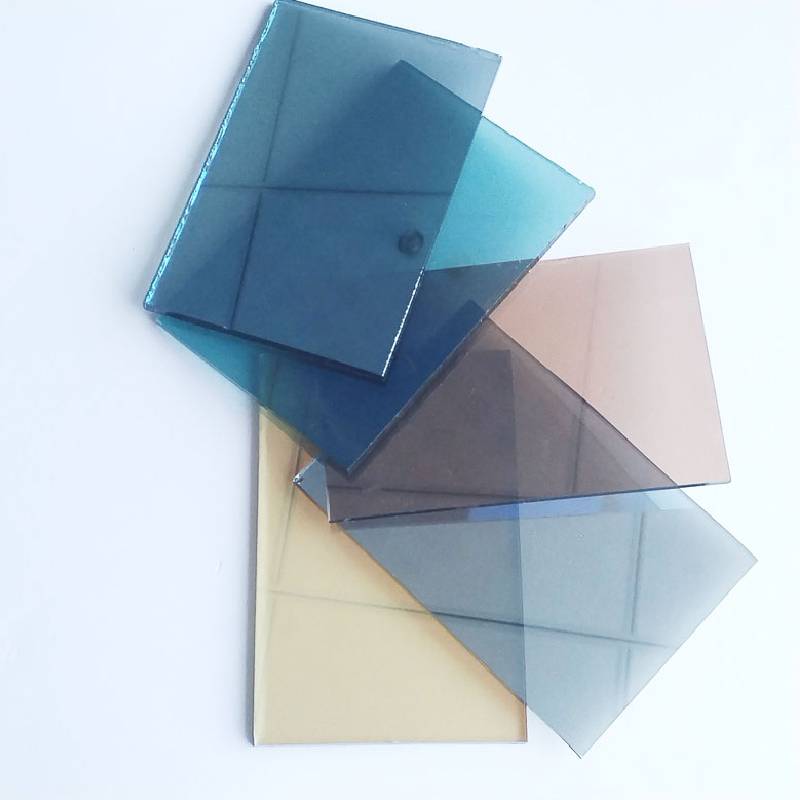15mm float glass is becoming an increasingly popular choice in the architectural and construction sectors, where its unique attributes are sought after for various innovative applications. Known for its clarity, strength, and versatile use, this particular thickness of float glass offers a combination of aesthetic appeal and robust performance, making it an optimal choice for modern infrastructure projects.

Crafted through a meticulous manufacturing process, 15mm float glass is created by floating molten glass on a bed of molten tin, which results in a perfectly flat surface on both sides. This process ensures a consistent thickness and high-quality finish, distinguishing it from other types of glass. Its dimensional stability and clarity are of paramount importance for ensuring maximum light transmission and transparency, features that are highly valued in both residential and commercial buildings.
When evaluating the structural properties of 15mm float glass, engineers and architects appreciate its impressive load-bearing capacity. This is particularly useful for curtain walls, partitions,
and large glass facades, where both durability and beauty need to coexist. Compared to thinner glass options, 15mm thick float glass can withstand substantial weight and pressure, reducing the risk of breakage and enhancing safety, which adds to the building's overall integrity.

From a design perspective, 15mm float glass offers unparalleled flexibility. Its relatively thick profile allows it to be cut, tempered, laminated, or even bent to fit bespoke architectural needs without compromising its strength or optical clarity. This makes it an excellent choice for creating stunning visual features and complex shapes that are often required in modern construction.
The energy efficiency of 15mm float glass also plays a significant role in its increased adoption. With an enhanced ability to slow the transfer of heat, it contributes significantly to the thermal insulation of a building. This characteristic helps in maintaining the indoor temperature, leading to reduced energy consumption for heating or cooling, thereby supporting sustainable building practices and reducing carbon footprints.
15mm float glass
Experts in sustainable architecture often highlight the recyclability of float glass as another contributing factor to its environmental benefits. The material can be recycled multiple times without losing its inherent properties, making it an eco-friendly choice for projects that aim for green certification.
The trustworthiness of using 15mm float glass is reinforced through rigorous testing and certification processes that ensure it meets global safety and performance standards. Manufacturers provide warranty and quality assurance that underscore their commitment to providing material that not only beautifies a space but also stands the test of time in terms of durability and safety.
Choosing 15mm float glass emerges as a demonstration of expertise in material selection for any project aiming for a sophisticated look combined with practicality. It symbolizes a deep understanding of both traditional craftsmanship and innovative design principles, cementing its status as a preferred material in the building sector.
In summary, the choice of 15mm float glass in construction projects leverages its unique suite of benefits; it is not only an architectural statement but also a strategic decision backed by its technical advantages. From supporting the structural design to enhancing the user experience through improved safety and comfort, this product stands out as a testament to modern advancements in glass technology.
 Afrikaans
Afrikaans  Albanian
Albanian  Amharic
Amharic  Arabic
Arabic  Armenian
Armenian  Azerbaijani
Azerbaijani  Basque
Basque  Belarusian
Belarusian  Bengali
Bengali  Bosnian
Bosnian  Bulgarian
Bulgarian  Catalan
Catalan  Cebuano
Cebuano  Corsican
Corsican  Croatian
Croatian  Czech
Czech  Danish
Danish  Dutch
Dutch  English
English  Esperanto
Esperanto  Estonian
Estonian  Finnish
Finnish  French
French  Frisian
Frisian  Galician
Galician  Georgian
Georgian  German
German  Greek
Greek  Gujarati
Gujarati  Haitian Creole
Haitian Creole  hausa
hausa  hawaiian
hawaiian  Hebrew
Hebrew  Hindi
Hindi  Miao
Miao  Hungarian
Hungarian  Icelandic
Icelandic  igbo
igbo  Indonesian
Indonesian  irish
irish  Italian
Italian  Japanese
Japanese  Javanese
Javanese  Kannada
Kannada  kazakh
kazakh  Khmer
Khmer  Rwandese
Rwandese  Korean
Korean  Kurdish
Kurdish  Kyrgyz
Kyrgyz  Lao
Lao  Latin
Latin  Latvian
Latvian  Lithuanian
Lithuanian  Luxembourgish
Luxembourgish  Macedonian
Macedonian  Malgashi
Malgashi  Malay
Malay  Malayalam
Malayalam  Maltese
Maltese  Maori
Maori  Marathi
Marathi  Mongolian
Mongolian  Myanmar
Myanmar  Nepali
Nepali  Norwegian
Norwegian  Norwegian
Norwegian  Occitan
Occitan  Pashto
Pashto  Persian
Persian  Polish
Polish  Portuguese
Portuguese  Punjabi
Punjabi  Romanian
Romanian  Russian
Russian  Samoan
Samoan  Scottish Gaelic
Scottish Gaelic  Serbian
Serbian  Sesotho
Sesotho  Shona
Shona  Sindhi
Sindhi  Sinhala
Sinhala  Slovak
Slovak  Slovenian
Slovenian  Somali
Somali  Spanish
Spanish  Sundanese
Sundanese  Swahili
Swahili  Swedish
Swedish  Tagalog
Tagalog  Tajik
Tajik  Tamil
Tamil  Tatar
Tatar  Telugu
Telugu  Thai
Thai  Turkish
Turkish  Turkmen
Turkmen  Ukrainian
Ukrainian  Urdu
Urdu  Uighur
Uighur  Uzbek
Uzbek  Vietnamese
Vietnamese  Welsh
Welsh  Bantu
Bantu  Yiddish
Yiddish  Yoruba
Yoruba  Zulu
Zulu 


